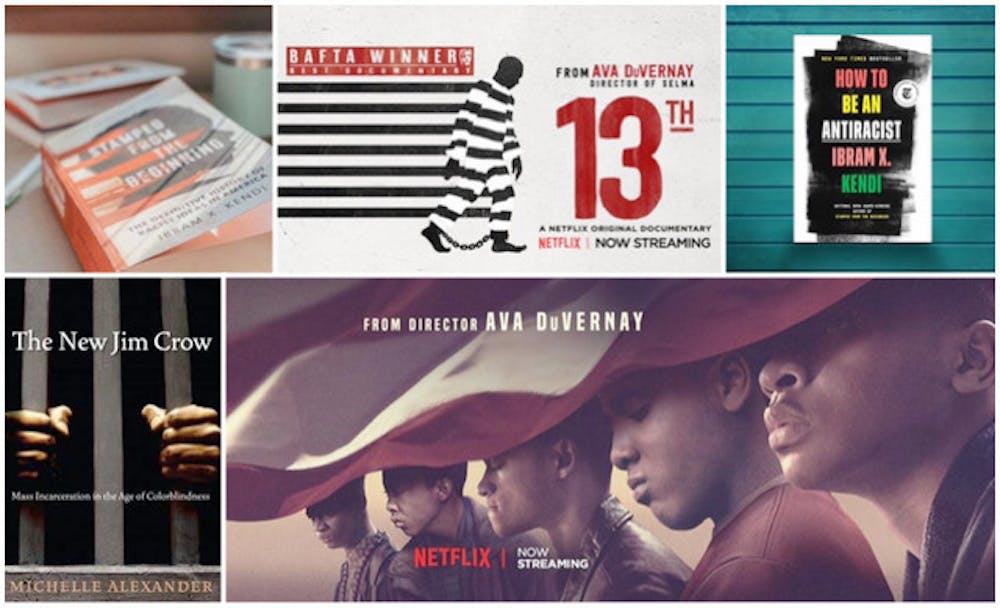By Ian Krietzberg and Esther Morales
Arts & Entertainment Editor and Reviews Editor
The murder of George Floyd by Minneapolis Police Officer Dereck Chauvin sparked a string of global protests reminiscent of the Civil Rights Movement era.
Around the world, people are gathering by the thousands to demand sweeping police reforms. And though it was George Floyd’s death that sparked this movement, this was the straw that broke the camel’s back –– police murders of unarmed, innocent Black people have been ongoing for decades and are showing little sign of stopping without immense change.
Amid this powerful upsurge in protests around the nation and world, many non-Black people are looking for ways to support their fellow Black Americans.
The attempt to become an ally of the movement can sometimes create strife, as it is a movement and an idea that can be difficult for non-Black people to intimately understand.
From this stems the idea of self-education. Since the beginning of these protests, the internet has promoted a variety of different forms of media that non-Black people can use to help educate themselves about the history and importance of the movement.
The most important aspect of these forms of media have a common purpose of education. This surrounds the idea of sobering up non-Black people to the harsh, brutal realities of life as a Black American.

Many of these realities are easy for non-Black people to brush aside or ignore, but are imperative to look in the face, and accept the stereotypes and discrimination that Black people have lived with for centuries –– stereotypes and discrimination that, all too often, lead to unjust deaths.
In our textbooks, news and social media feeds, the information relayed to us regarding injustice is often glossed over, watered down or skewed. Accurate accounts of the Black experience and disenfranchisement can be found in the media if you know where to look.
Books have always been fundamental to learning, and reading has a significant impact on a person’s psychological, mental and emotional growth. A lack of information on any matter spawns ignorance.
There are countless resources available to you at the touch of a fingertip that are reliable, educational, and historically documented to show what it really means to be Black in America.
Books
These resources, often used as education for non-Black allies, include “So You Want to Talk About Race” by Ijeoma Oluo, “How to Be Antiracist” by Ibram X. Kendi and “The New Jim Crow: Mass Incarceration in the Age of Colorblindness” by Michelle Alexander.
“So You Want to Talk About Race” walks readers through subjects from police brutality to intersectionality, in an honest examination of race in America. Oluo makes every conversation she has with the reader clear and accessible so that someone from any background will be able to start bettering themselves.
Plain and simple, this next book reminds readers that it isn’t enough to not be racist, we must be anti-racist. In “How To Be An Antiracist,” Dr. Kendi breaks down racism in all its forms from how it intersects with ethics, law, and science while sharing his own awakening to antiracism. It is a piece of work for those looking to take the next steps in building an antiracist and equitable society.
“The New Jim Crow: Mass Incarceration in the Age of Colorblindness” takes a deep dive into the covert, systematic discrimination that Black people face in America. In this book, Alexander tackles institutional racism, the basic human and civil rights and the U.S. criminal justice system.
“We have not ended racial caste in America, we have merely redesigned it,” Alexander says in her book.
Online Media
Beyond books, there are many alternative types of media that serve a similar purpose. Films like the “Blackklansman,” “13th” and “When They See Us” are all full of painful truths and sobering realities.
“BlacKkKlansman,” which is streaming on Prime Video, takes place in the 1970s and provides a wholly thought-provoking examination of American race relations. The film showcases, without any buffers or minimization, the extreme racism that Black people have experienced for so long, by demonstrating the fight between Black activists and the Ku Klux Klan. It is a fight that, then and now, is characterized by wanton violence and fear mongering: a fight that leaves Black bodies in the streets.
“13th” is a 2016 documentary streaming on Netflix that takes a disturbing and thorough look into the way the American prison system affects Black people. The film begins with the passage of the 13th amendment and follows the subsequent establishment of Jim Crow, taking the viewer through the bloody history of Black Americans to Bill Clinton’s Three Strikes Law, and present times, where Black people are being slaughtered in the streets. It examines the dehumanization of Black people, with the goal of disenfranchising and re-enslaving Black Americans.

“When They See Us,” which is streaming on Netflix, is based on the Central Park Five case. It pulls the audience into the extreme injustice surrounding wrongful convictions and coerced testimony of the Central Park Five, demonstrating in no uncertain terms how painfully the futures of the five boys were stripped away by a racist judicial system. Now, the group is known as the Exonerated Five. Just last fall, one of the members of the Exonerated Five, Yusef Salaam, came to speak at the College.
As non-Black allies turn to their Black friends and loved ones to ask what they can do, the first step is clear: getting educated and knowing what you’re truly fighting for. There is no way to understand to the full extent what Black people have relentlessly endured throughout history and continue to face in a country that functions on systematic racism, but turning to books, documentaries, movies and articles to hear their stories is a great foundation.







